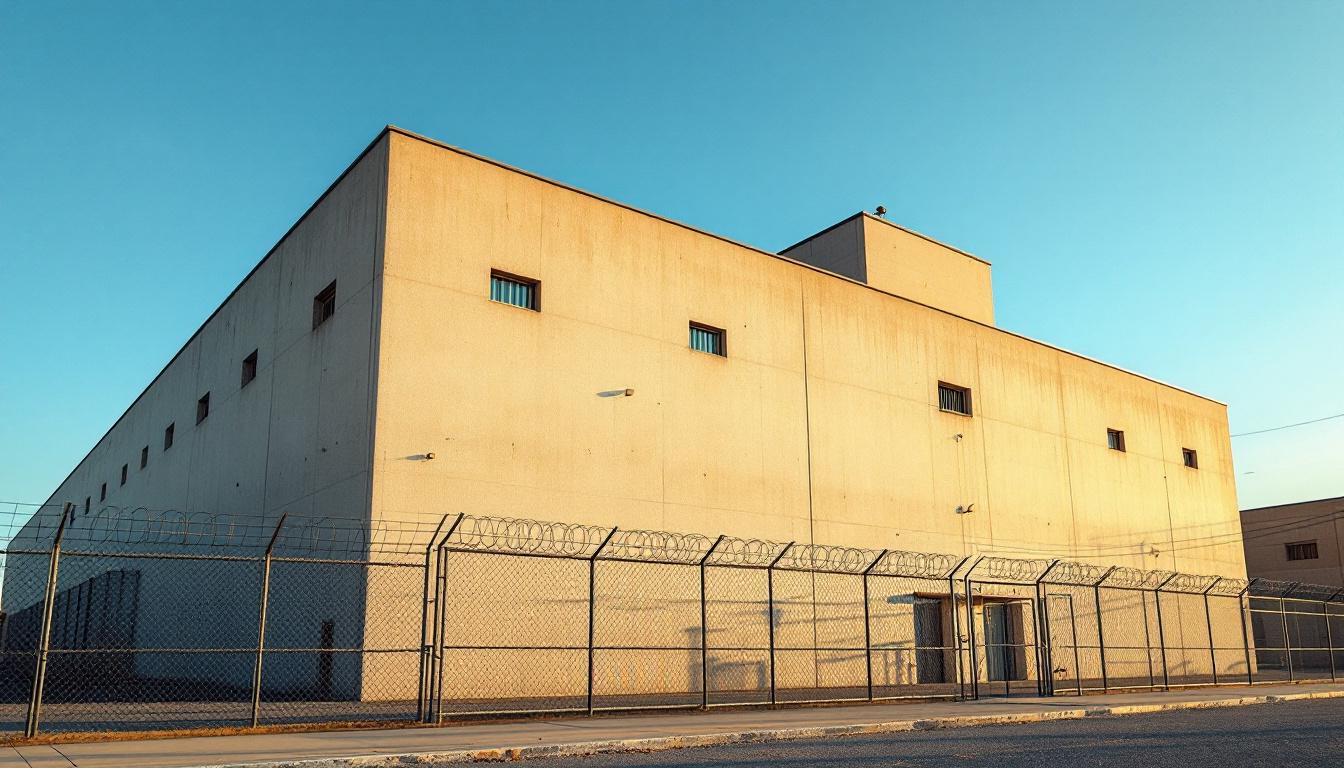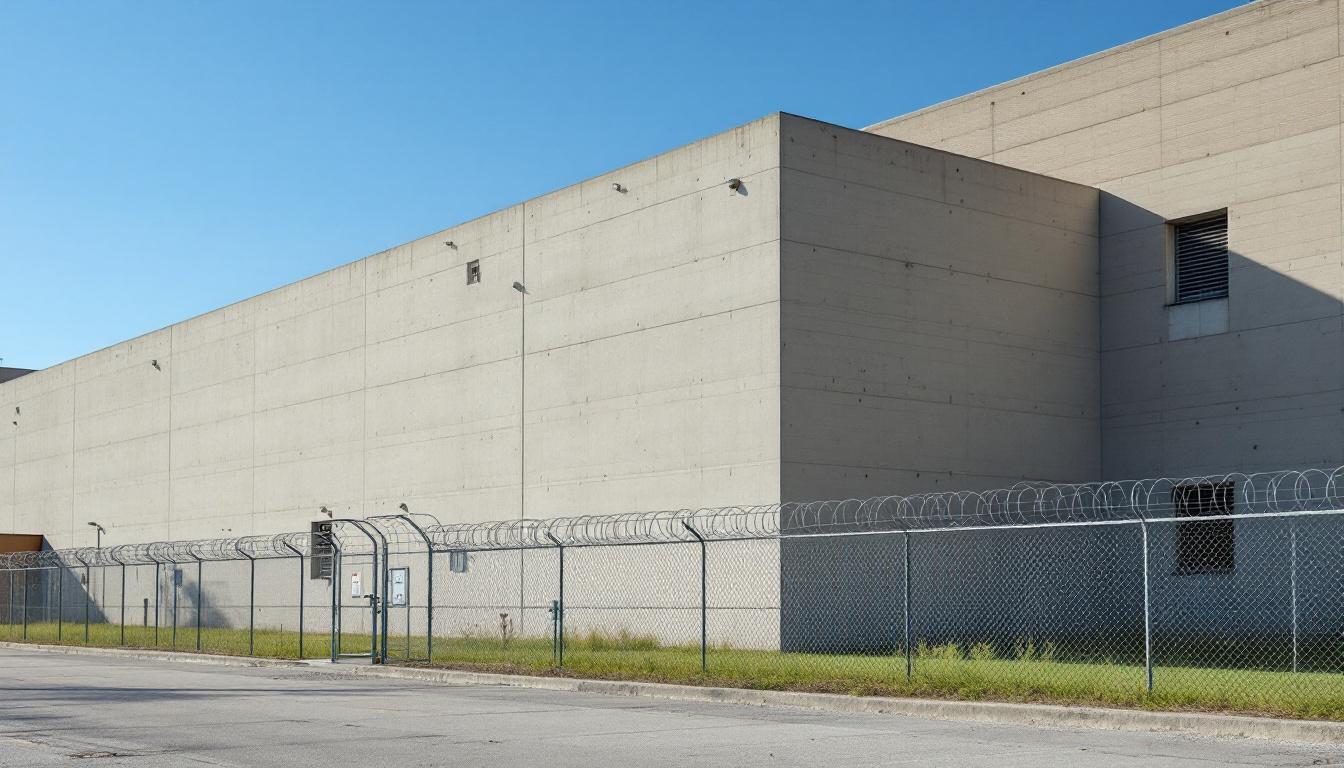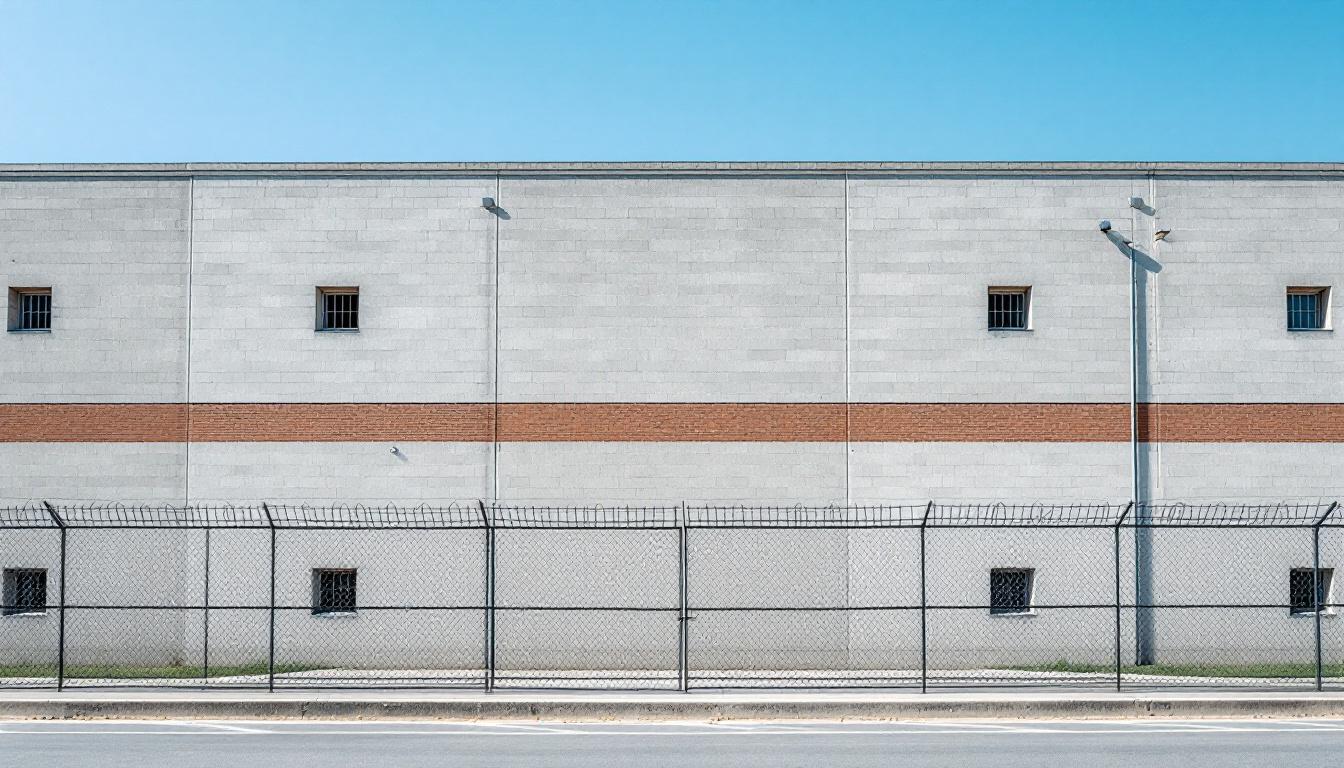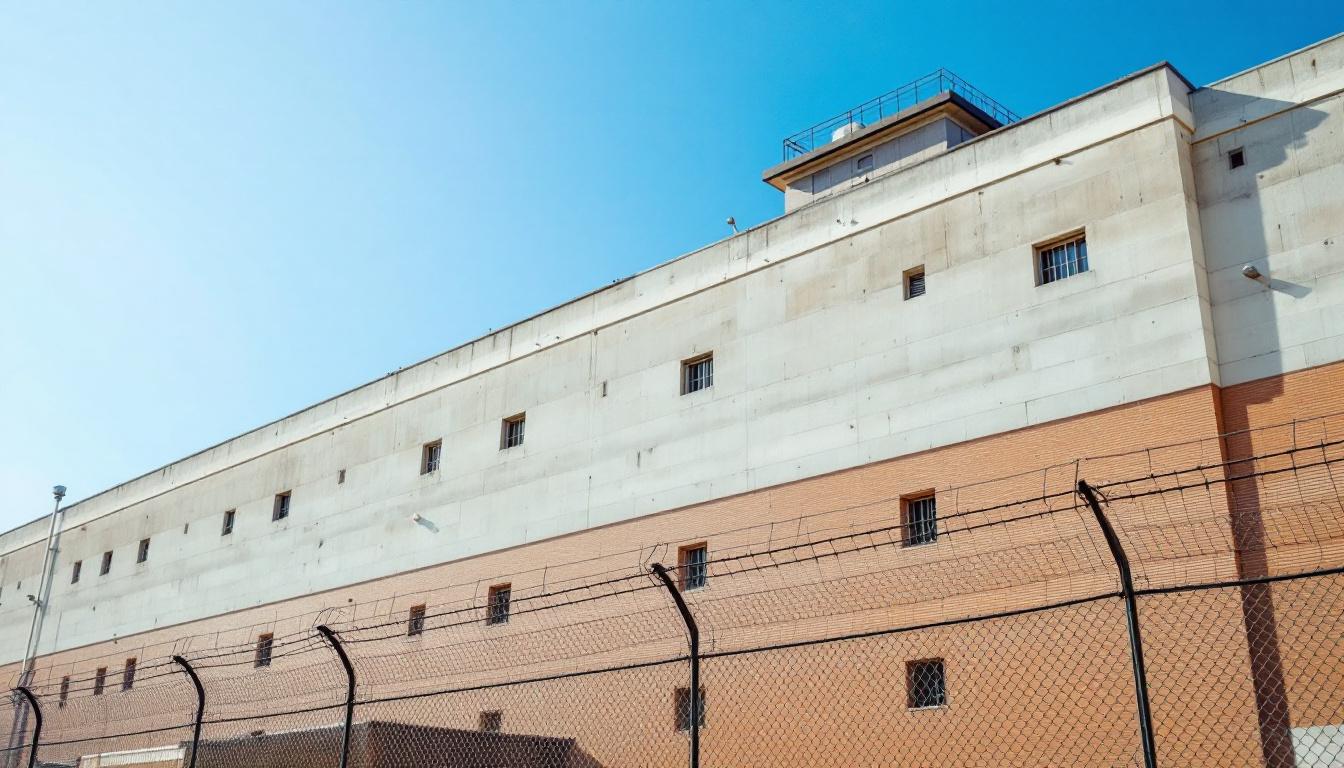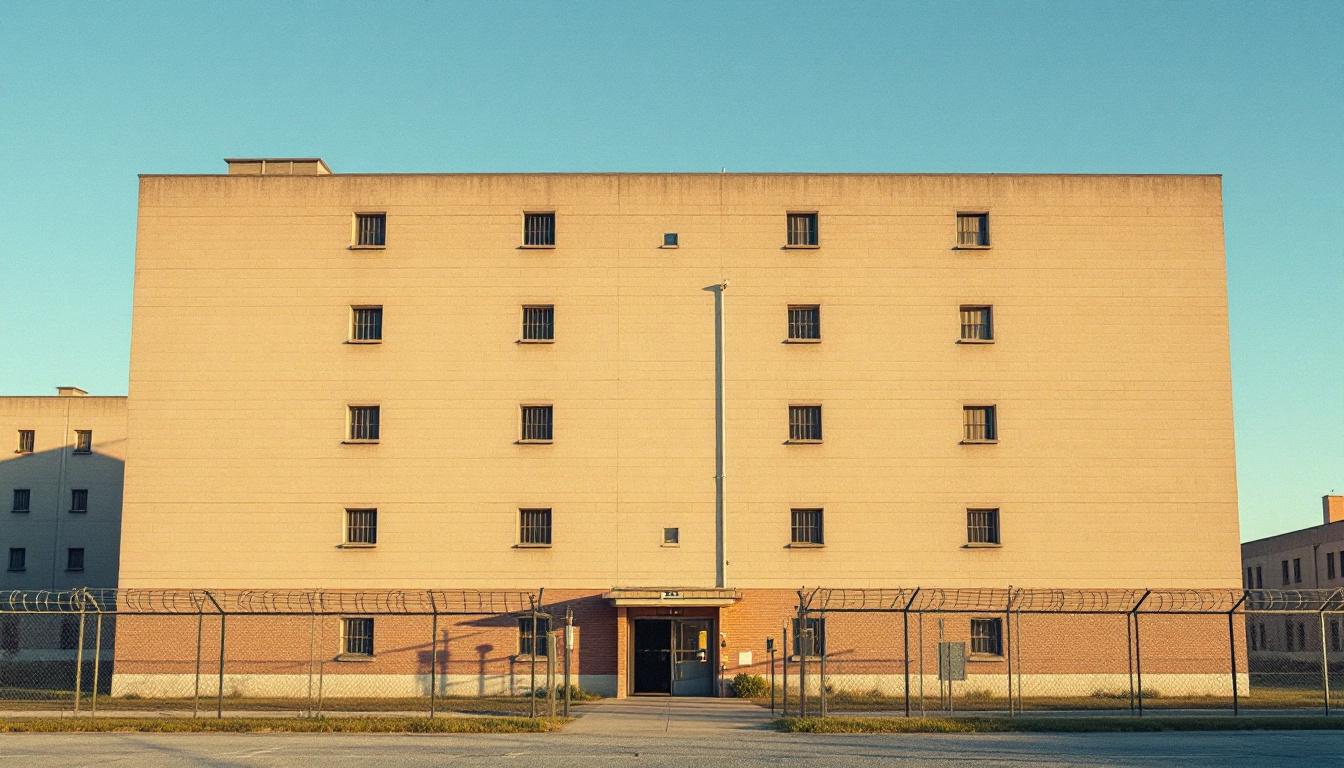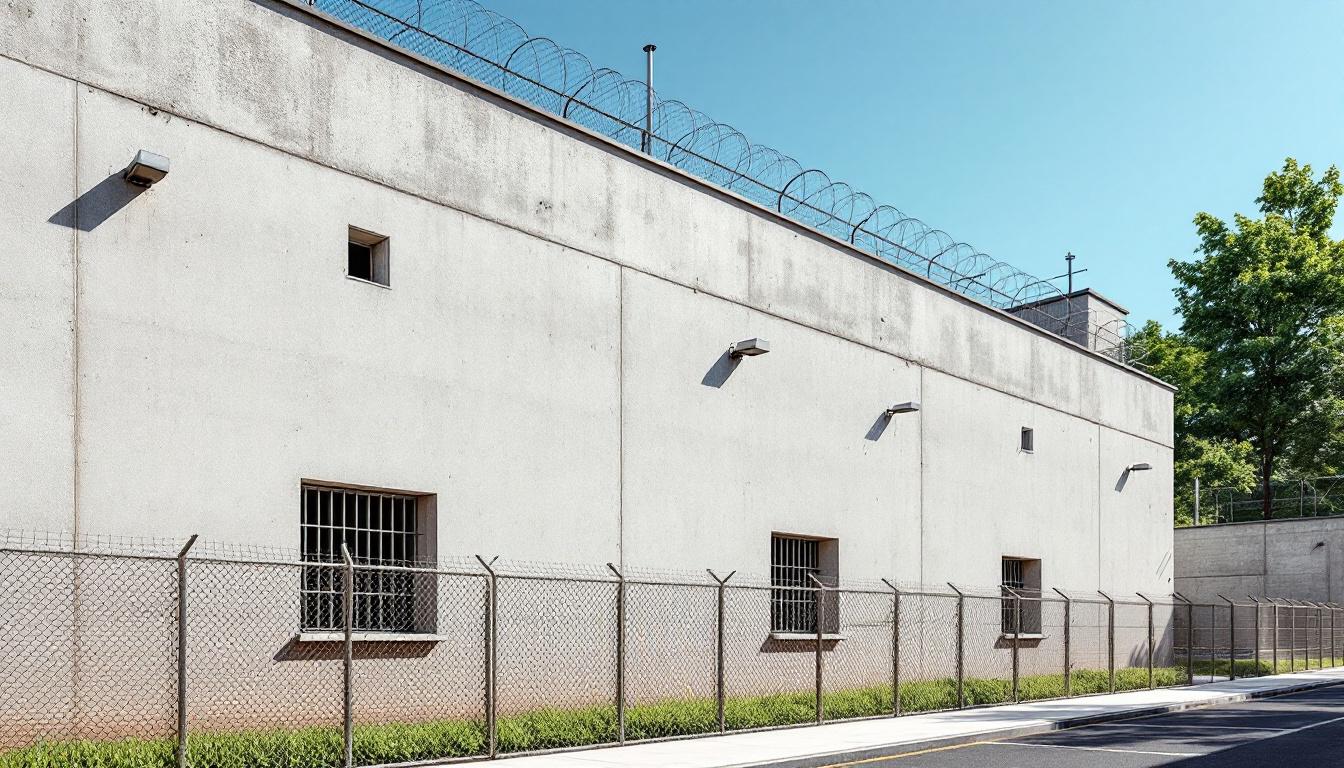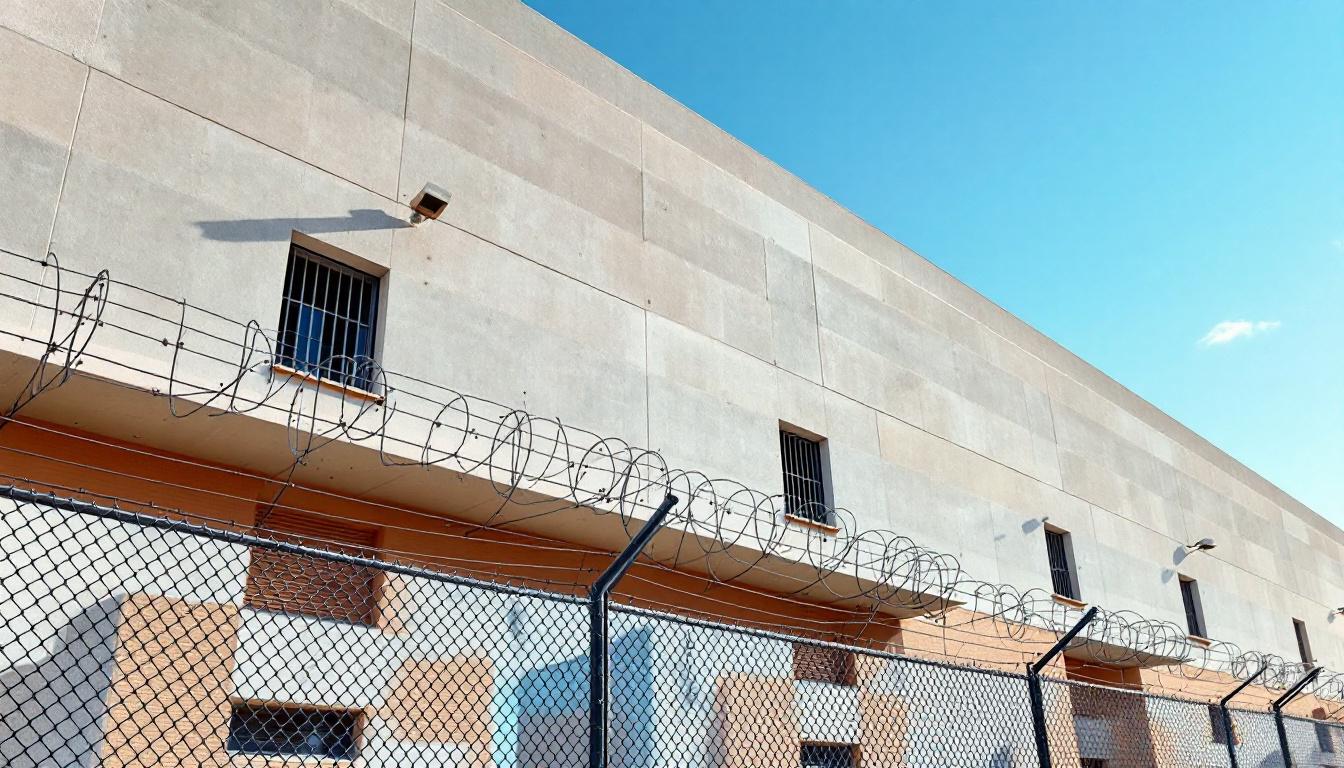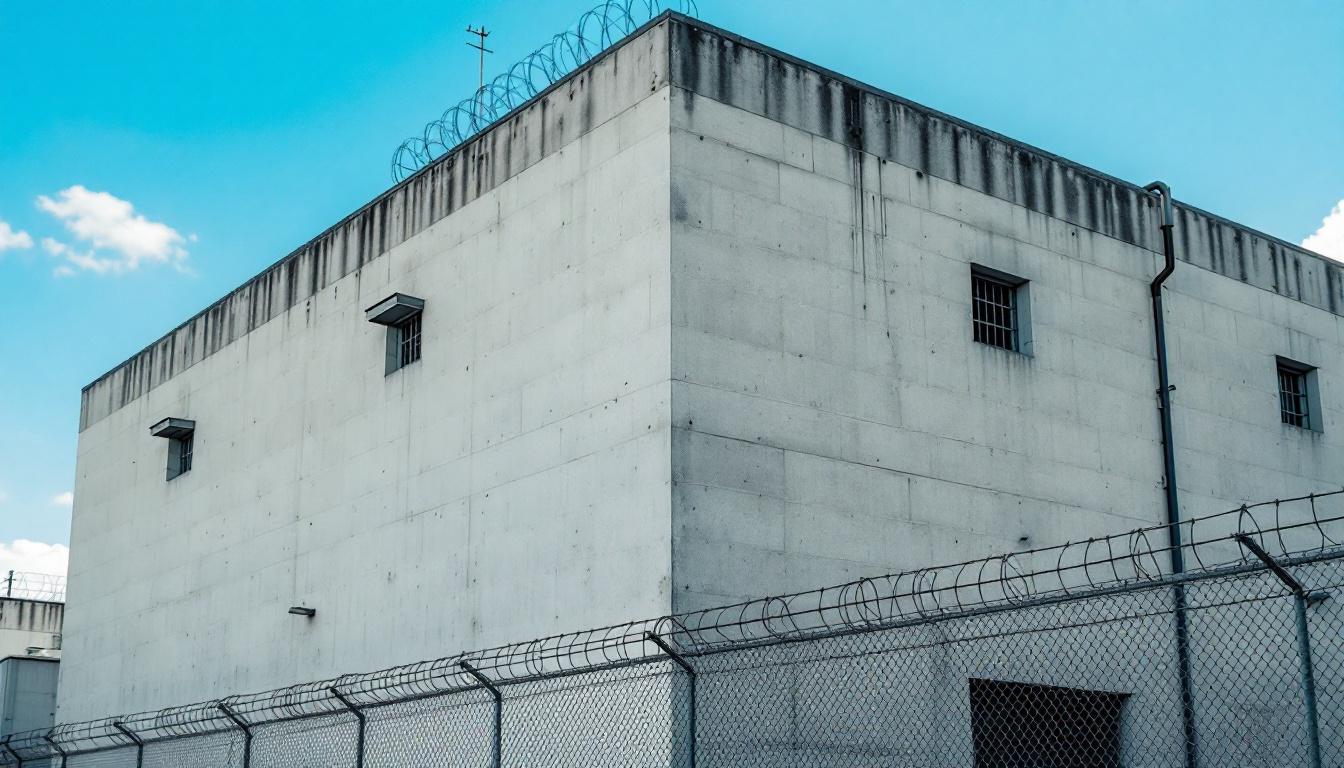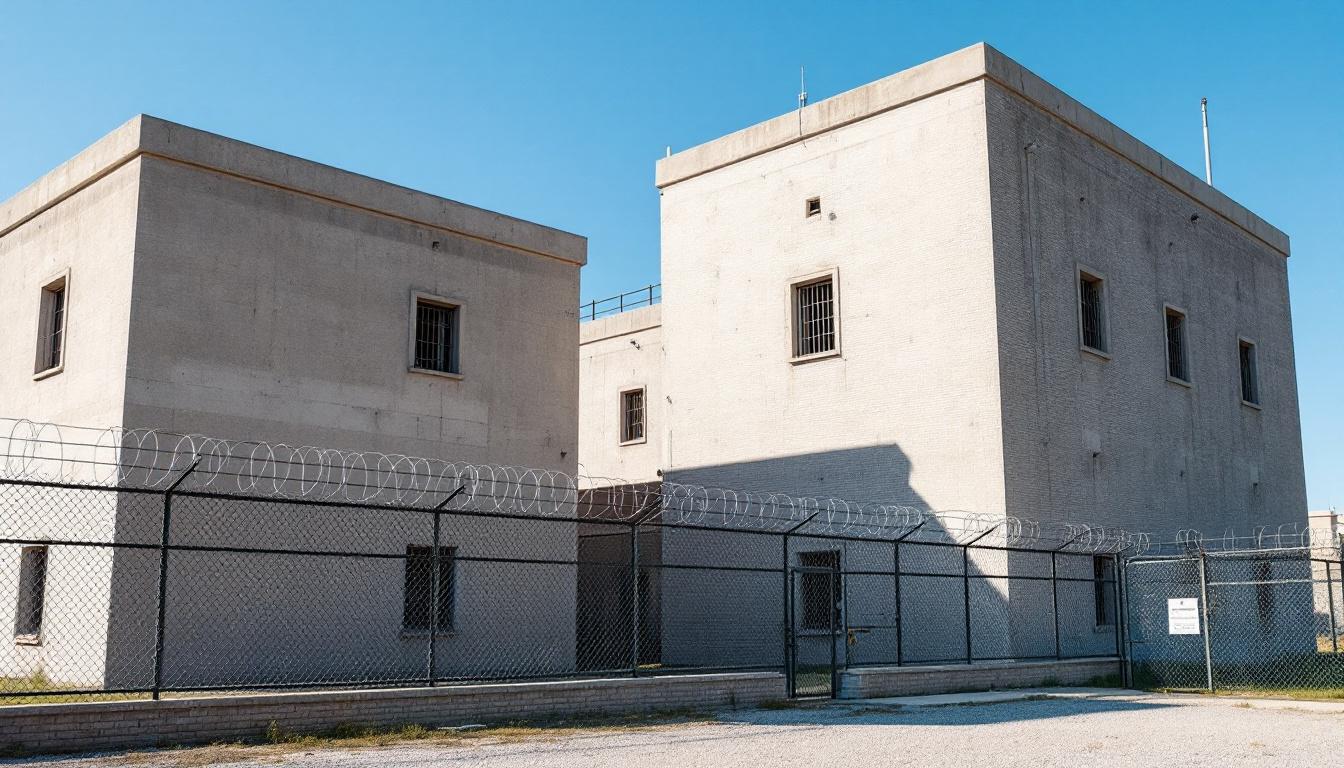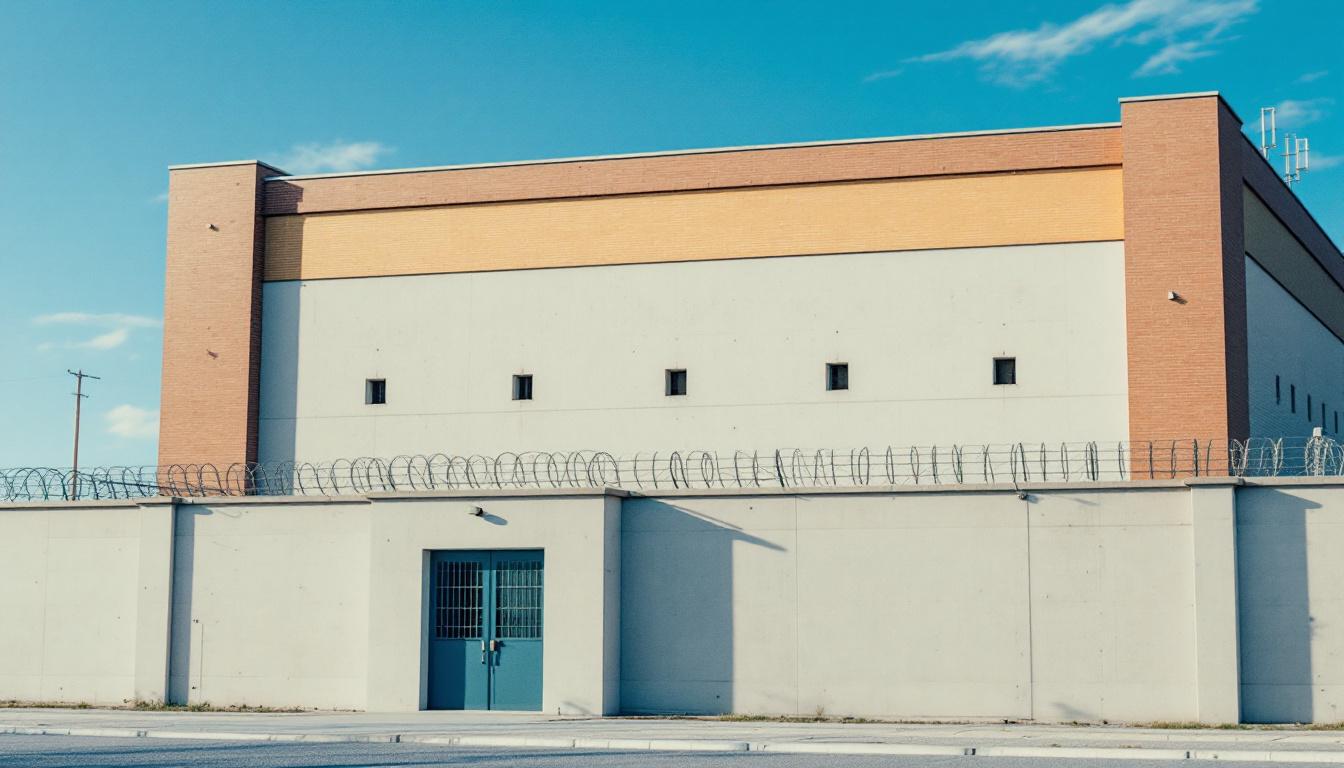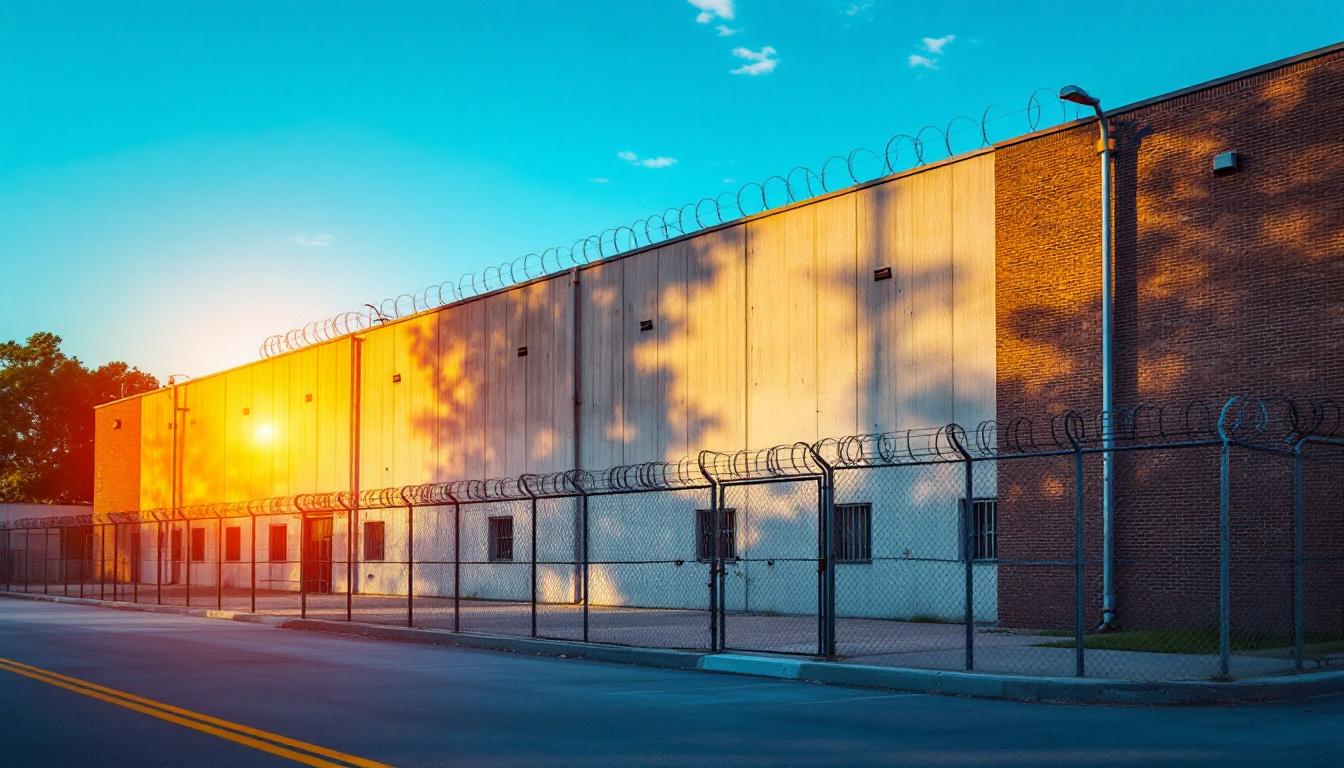
Quick Navigation
How to contact an inmate at Washoe County Sheriff
This comprehensive guide will walk you through how to connect with an inmate at Washoe County Sheriff. Follow the steps below to find an inmate and send letters and photos:
- Search for the inmate using our search tool below
- Create your account or log in to Penmate
- Write your message (up to 6,000 characters)
- Send instantly - inmates receive printed copies daily
Find an Inmate
Search for an inmate to start communicating today
Tip: You can search by first name, last name, or inmate ID number
To contact a person at Washoe County Sheriff start by searching for the person on the official facility website. Perform a search by following these steps:
- Step 1: Enter their first name and last name into the search form and click "Search"
- Step 2: Locate their inmate record
- Step 3: Write down their Inmate ID and any housing information provided
Important! Be sure to enter the person's full name. Nicknames should not be used.
How to Send Messages to Inmates

You can use your phone or computer to send emails, letters, and photos to an inmate. Messages are sent electronically to inmate tablets or kiosks at the facility. If you would like to send a message, start by searching for an inmate at Washoe County Sheriff.
Sending Photos and Postcards

A great way to send love and support to a loved one at Washoe County Sheriff is to send photos and postcards. It only takes a few minutes to send photos from your phone and it makes a huge difference. You can also mail postcards with words of support and inspiration, or design your own postcard for special moments like birthdays and holidays.
Important! Be sure not to send any explicit photos or they may not be approved by the facility. You can also use a photo printing app like Penmate to make sure your photos are printed at the correct size (4x6 or 3x5) and are mailed according to the rules and regulations of Washoe County Sheriff.
Frequently asked questions about Washoe County Sheriff
-
How long does it take to deliver a message?
If you're sending an email message your letter is usually delivered within 24-48 hours. For messages sent via mail you should expect delivery within 3-7 days. All messages will need be approved by Washoe County Sheriff.
-
How much does it cost to send a message to Washoe County Sheriff?
You can send a message free using your phone or mail a message via USPS for the price of a $0.60 stamp and envelope. You can also purchase credits or e-stamps from services starting at $1.99.
-
What services can I use to contact an inmate at Washoe County Sheriff?
Penmate
You can use Penmate to send letters and photos to an inmate from your phone. It's an easy way to stay in touch during your loved one's incarceration. Use the inmate locator to find an inmate's location and contact information, then you can send messages within a few minutes.
Securus messaging
Securus may be another option for communicating with an inmate at Washoe County Sheriff. You can create a friends and family account and purchase credits to send messages. All messages will be reviewed and must be approved by the facility.
JPay
Some county jails and state prisons may support sending messages with JPay. You must register an account with the system, find your loved one, and purchase stamps to send messages. For some locations you can also attach photos.
Smart Jail Mail
You may also check if Smart Jail Mail is available at Washoe County Sheriff. Smart Jail Mail is operated by Smart Communications and has contracted with some state and county jails. After purchasing credits, your messages and photos are sent to the facility, printed out, and then handed out to your loved one.
-
What is the mailing address of Washoe County Sheriff?
Mailing address:
Washoe County Sheriff
911 E Parr Blvd
Reno, NV 89512
Phone: (775) 328-3001Business hours:
- Monday: 7:00 AM – 5:00 PM
- Tuesday: 7:00 AM – 5:00 PM
- Wednesday: 7:00 AM – 5:00 PM
- Thursday: 7:00 AM – 5:00 PM
- Friday: 7:00 AM – 5:00 PM
- Saturday: 7:00 AM – 5:00 PM
- Sunday: 7:00 AM – 5:00 PM
-
What are the visiting hours at Washoe County Sheriff?
Visiting hours at Washoe County Sheriff vary by housing unit and security level. Generally, visits are scheduled on weekends and holidays, with some facilities offering weekday visits. Contact the facility directly at (775) 328-3001 or check their website for the current visiting schedule. Visits typically last 30-60 minutes and must be scheduled in advance.
-
What items are prohibited when sending mail to Washoe County Sheriff?
Prohibited items typically include: cash, personal checks, stamps, stickers, glitter, glue, tape, staples, paperclips, polaroid photos, musical or blank greeting cards, hardcover books, magazines with staples, and any items containing metal or electronics. Only send letters on plain white paper with blue or black ink. Photos must be printed on regular photo paper (no Polaroids). Always check with Washoe County Sheriff for their specific mail policies.
-
How do I send money to an inmate at Washoe County Sheriff?
You can send money to an inmate at Washoe County Sheriff through several methods: 1) Online using JPay, Access Corrections, or the facility's approved vendor, 2) Money orders mailed directly to the facility with the inmate's name and ID number, 3) Kiosks located in the facility lobby, or 4) Over the phone using a credit or debit card. Fees vary by method, typically ranging from $2.95 to $11.95 per transaction.
-
Can I schedule a video visit with an inmate at Washoe County Sheriff?
Many facilities now offer video visitation as an alternative to in-person visits. At Washoe County Sheriff, video visits may be available through services like Penmate, Securus Video Connect, GTL, or ICSolutions. Video visits typically cost $10-20 for 20-30 minutes and must be scheduled in advance. You'll need a computer or smartphone with a camera and reliable internet connection. Contact the facility for their specific video visitation policies and approved vendors.
-
What identification do I need to visit an inmate at Washoe County Sheriff?
All visitors must present valid government-issued photo identification such as a driver's license, state ID, passport, or military ID. Minors must be accompanied by a parent or legal guardian who can provide the minor's birth certificate. Some facilities require visitors to be on the inmate's approved visitation list, which may require a background check. Contact Washoe County Sheriff for specific ID requirements and visitor approval procedures.
-
How can I find out an inmate's release date?
To find an inmate's release date at Washoe County Sheriff, you can: 1) Use the online inmate search tool if available, 2) Call the facility's records department, 3) Contact the inmate's case manager or counselor, or 4) Have the inmate provide this information during a call or visit. For privacy reasons, some facilities only release this information to immediate family members.
Facility Overview
Official Website

About Washoe County Sheriff
County jails serve as critical detention centers within local jurisdictions, and the Washoe County Jail represents a vital component of Nevada’s correctional infrastructure in the Reno metropolitan area. This NV correctional facility operates within the broader framework of regional law enforcement and judicial services, providing secure housing for individuals awaiting trial, serving shorter sentences, or being processed through the local court system. Located in the high desert mountain region of northern Nevada, the facility typically manages a diverse population that reflects the demographic composition of the greater Reno-Sparks area.
The population services at Washoe County Jail generally encompass various support programs designed to address the immediate and transitional needs of those in custody. These may include basic medical care, mental health screening, educational opportunities, and substance abuse counseling - services that are commonly found in modern county jail operations. The facility often works to maintain connections between detainees and their families through visitation programs and communication services, recognizing the importance of community ties during periods of incarceration. Additionally, the jail typically coordinates with local courts, public defenders, and other agencies to facilitate the legal process while individuals remain in custody.
As part of Nevada’s broader correctional network, this county jail serves not dedicated Reno but surrounding communities within Washoe County, functioning as a regional hub for short-term detention and pre-trial services. The facility generally emphasizes rehabilitation and reintegration preparation, offering programs that may help individuals develop skills and resources needed for successful community reentry. Through its position within the mountain region’s justice system, the jail typically maintains collaborative relationships with local service providers, treatment centers, and community organizations to support comprehensive approaches to public safety and offender rehabilitation.
Programs & Services
Through comprehensive support services, the population at Washoe County Jail receives assistance designed to address underlying challenges while preparing them for successful community reintegration. The facility’s approach recognizes that meaningful change often occurs when individuals have access to structured programming that addresses both immediate needs and long-term goals. These supportive services typically emphasize skill development, personal growth, and the cultivation of healthy coping mechanisms that can serve participants well beyond their period of incarceration.
Educational and vocational programming forms a cornerstone of the supportive services available to the population. Education services may supply fundamental academic instruction, while special education services often provide individualized support for those with specific learning needs. The vocational programs typically focus on developing practical skills that enhance employment prospects upon release, offering hands-on training in various trades and industries. In addition to this, employment readiness programming often includes resume development, interview preparation, and workplace behavior training, all designed to strengthen the population’s competitive position in the job market.
Therapeutic and enrichment programs provide additional layers of support that address both personal development and underlying issues that may have contributed to incarceration. Substance abuse treatment typically offers evidence-based interventions for those struggling with addiction, providing tools and strategies for maintaining sobriety. Music programs may supply creative outlets that promote emotional expression and stress management, while prison industries often includes work opportunities that develop job skills and work ethic. These diverse programming options work collectively to create a supportive environment where the population can develop the resources necessary for successful reentry into their families and communities.
Daily Life & Visitation

Structured routines and carefully managed schedules form the backbone of how the population navigates their time within the facility, with organizational systems designed to maintain order while providing essential services and programming opportunities. Today’s operations at Washoe County Jail consistently revolve around predetermined schedules that typically begin with early morning counts and meal service, followed by structured blocks of time allocated for various activities, housing unit cleaning responsibilities, and programmed services that supply both structure and purpose to each day.
The population generally resides in housing units that may range from dormitory-style accommodations to individual cells, depending on classification levels and security considerations, with living spaces typically equipped with basic amenities including bedding, storage areas for approved personal property, and access to restroom facilities. Meals are usually served at designated times in common dining areas or delivered directly to housing units, with the facility often providing three meals daily that meet nutritional standards, while commissary services typically allow residents to purchase additional food items, hygiene products, and approved personal items using funds from their facility accounts.
In addition to this basic structure, recreational opportunities often include access to television viewing areas, library services, and scheduled exercise periods in designated outdoor or indoor recreation spaces, while visitation policies generally allow for regular contact with family members and friends through scheduled in-person visits, telephone calls, and sometimes video conferencing systems. Work assignments within the facility may include kitchen duties, laundry services, cleaning responsibilities, and maintenance tasks that help maintain daily operations while providing the population with purposeful activity and sometimes modest compensation. Despite this structured environment, programming schedules typically incorporate educational opportunities, substance abuse counseling, religious services, and other rehabilitative programs designed to support personal development and successful community reintegration.
Ready to Connect?
Start communicating with your loved one today
Search for an Inmate
